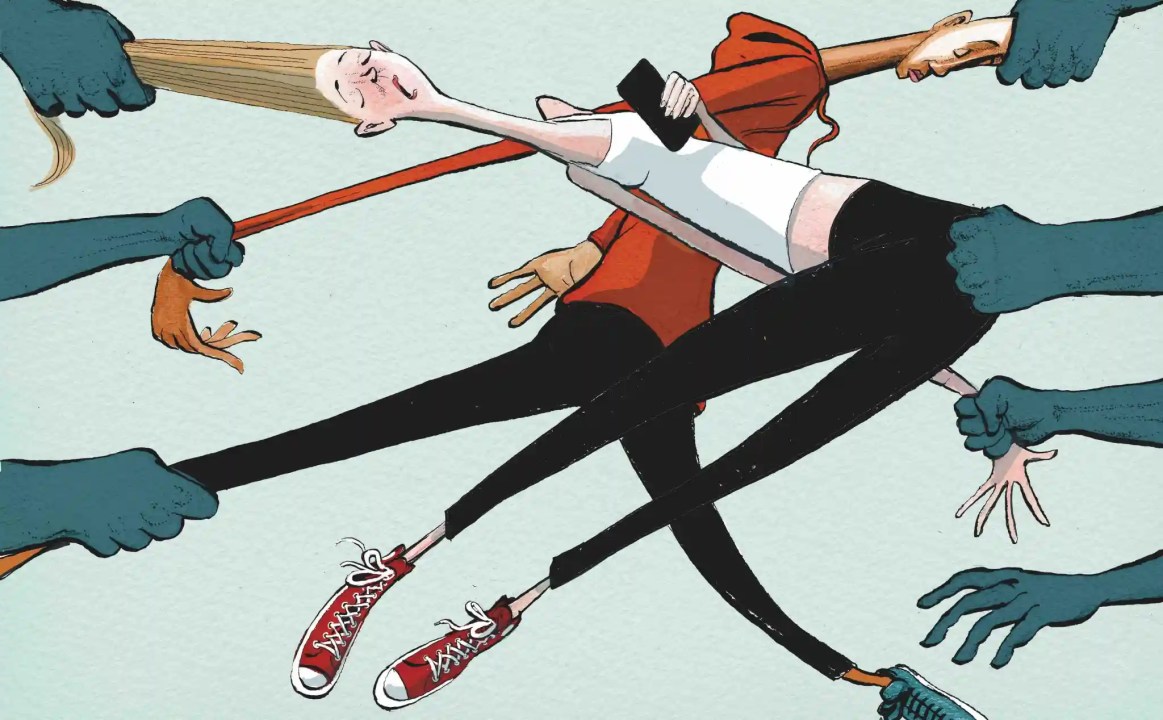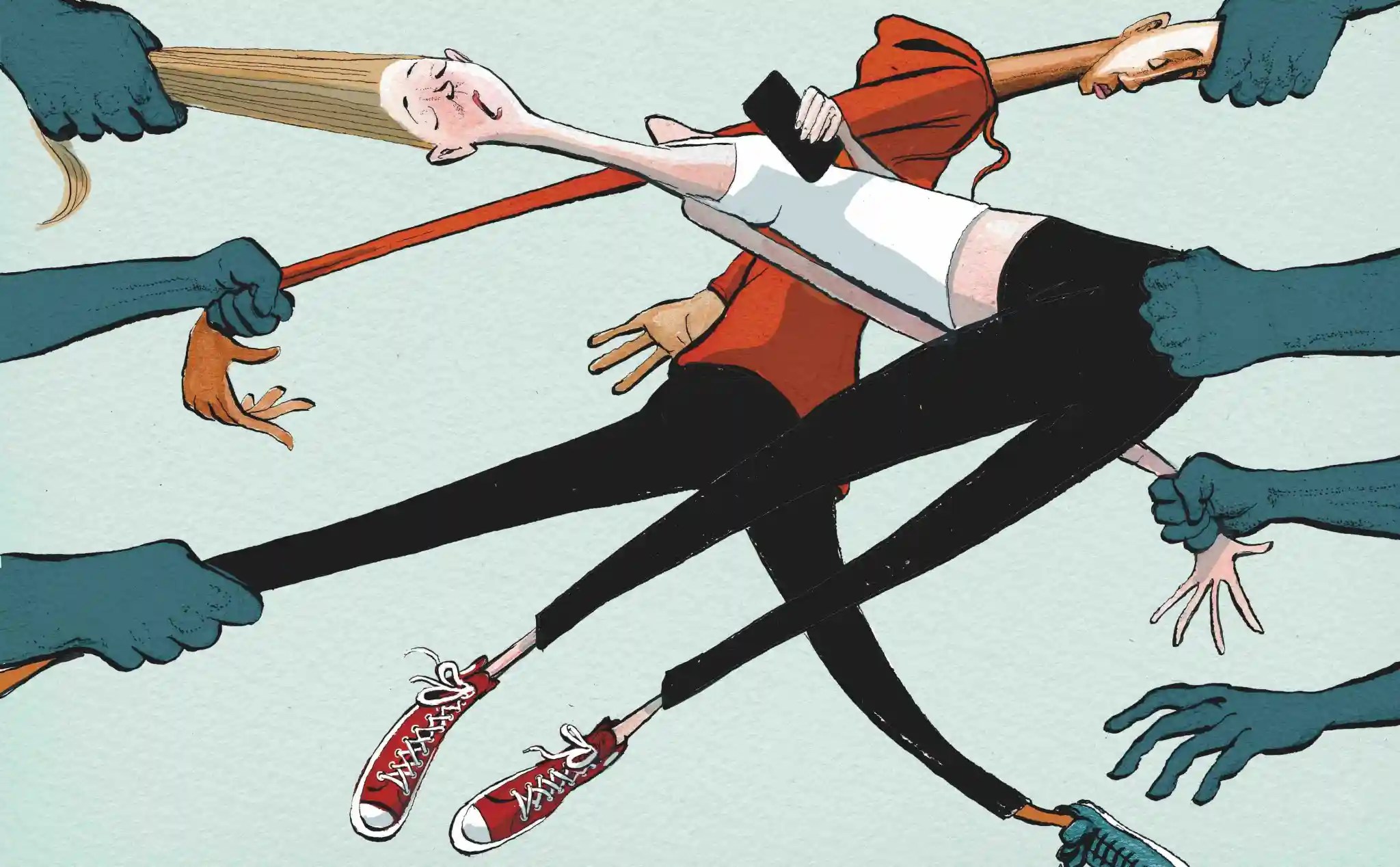According to the latest YouGov polling, just 1 per cent of 18- to 24-year-olds plan to vote Conservative at the next election. That’s right – 1 per cent. There are now more caravans in the UK than young Tories. Among 24- to 49-year-olds, the figures aren’t much better; Rishi Sunak’s party trails Labour by 45 points.
It wasn’t always this way. In 1983, Margaret Thatcher won 42 per cent of the youth vote, nine points ahead of Michael Foot. In 2010, David Cameron won 30 per cent. Even in the Labour landslide of 1997, John Major still won 27 per cent of 18- to 24-year-olds. It is a fallacy to suggest young voters are pre-determined to reject the Conservatives. But can you really blame them for doing so now?
The single biggest indicator of someone’s likelihood to vote Tory is whether they own their own home. It isn’t rocket science: you’re more likely to be a Conservative if you have something to conserve (such as a house), so you’d have thought the party would have prioritised housebuilding during the last 13 years. Instead, since 2010, the government hasn’t once met its own target of 300,000 new homes a year. The result? It has never been harder to get on the housing ladder.
In 1983, the average UK salary was £8,528, with an average house price of £26,000 – around three times higher. In 2023, the average salary is £33,000, with an average house price of £280,000 – more than eight times higher. For London and the south-east, it is higher still. To make matters worse, whilst until recently the major hurdle for first-time buyers was raising a deposit, rising interest rates now pose a further challenge.
And no, it is not just a question of millennials simply needing to go out for brunch less often or cancel their Netflix subscription. Without parental support, it is now almost impossible for an under-40 on an average salary to get on the housing ladder, especially in the big cities. Margaret Thatcher’s home-owning democracy has never felt further away for the next generation of voters.
Instead of ownership, today’s under-40s are renting in greater numbers than ever before. Yet in London, the average rental value for new tenancies is £2,145. Let’s say that’s for a two-bed flat. Excluding bills, that means each tenant is forking out almost £13,000 a year on rent, which – if you’re earning an average amount – means you’re breaking the 30 per cent rule (aiming to spend no more than 30 per cent of your gross monthly income on rent).
On top of that, graduates from English universities will start repaying their student loans once they earn above £25,000 a year, with an interest rate of RPI (currently 9.1 per cent) plus 3 per cent. No wonder by the end of last year, young graduates were facing a marginal rate of 41 per cent for basic rate taxpayers and 51 per cent for higher-rate ones.
And God forbid you want to start a family as well. According to the National Childcare Trust, the average cost of a part-time childcare place is now £7,000 per year. Jeremy Hunt’s Budget announcement in March that 30 hours of free childcare for working parents in England will be expanded to cover one- and two-year-olds is welcome, but it is the exception that proves the rule. From young graduates to young parents, the Conservatives have offered depressingly little to these voters since 2010.
It doesn’t have to be this way. Across the Atlantic, another Tory party is having significantly more success with the under-40s. In Canada, Pierre Poilievre’s Conservatives enjoy a seven-point lead among 18- 29-year-olds, rising to 19 points among 30- 44-year-olds. The reasons are various, including: growing dissatisfaction with Justin Trudeau; rising inflation; and Poilievre’s personal charisma. But central to his appeal is an understanding of what younger voters really want: economic aspiration combined with liberal social values.
Poilievre supports gay marriage and pro-choice abortion policies. He’s also in favour of legalised marijuana – the kind of eye-catching policy a future Conservative opposition leader should consider to gain the attention of younger voters. He describes himself as ‘pro-immigration’ and has innovative proposals for using technology to tackle climate change. Crucially, Poilievre also understands how young Canadians want a foot on the housing ladder, with average house prices even higher in Canada than in the UK. Recently, he demanded parliament be recalled early from summer recess to deal with the housing crisis.
If, as seems increasingly likely, the UK Conservatives find themselves out of power after the next election, it is surely incumbent on the next Tory leader to address the party’s fundamental weakness with younger voters. Among the over-65s, the Conservatives still enjoy a healthy 17 point lead, but this alone is no longer enough. For too long, consecutive Tory PMs have sought short-term electoral advantage by prioritising older voters over younger ones. Policies such as the triple-lock pensions guarantee were appropriate when the coalition government came to power, but are no longer justifiable. When one in four pensioners are millionaires it is surely wrong that, by 2025, the UK will be spending more on state pensions than policing, education and defence combined.
Other radical policies should also be considered. A recent report by the centre-right think tank Onward, co-authored by the Conservative MP Bim Afolami, argues that national insurance should be cut for the under-40s and increased for older workers. Even more controversial solutions, such as shifting the balance of taxation away from income and towards wealth, should also be on the table.
Whilst it’s true older voters tend to skew to the centre-right and younger voters to the centre-left, the gap between the two has now become a chasm. The Tories simply cannot win again without bridging it. As Thatcher showed in both 1979 and 1983, the Conservatives can not only perform creditably with younger voters, but win a plurality of them, provided they fully understand their aspirations and offer policies to realise them. When many young people talk of the Tories nowadays, they use the language of hatred. If we’re being honest, it’s not hard to see why.







Comments